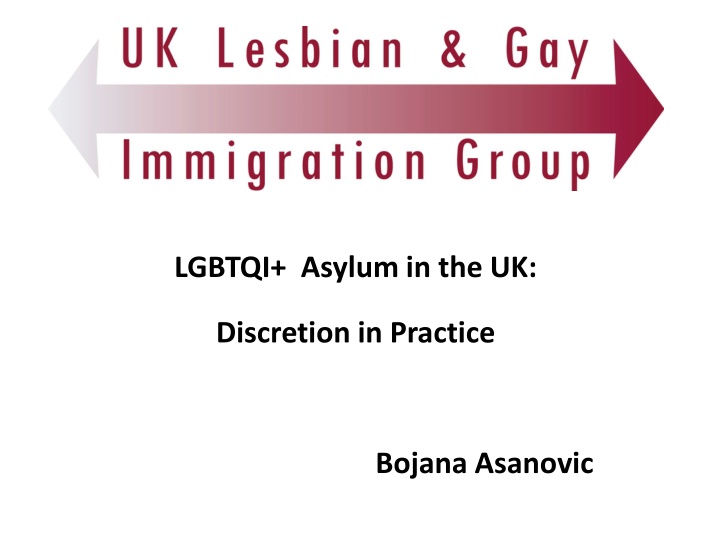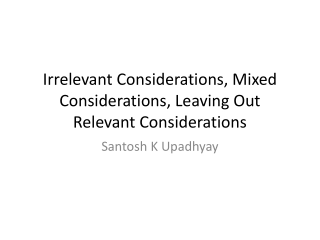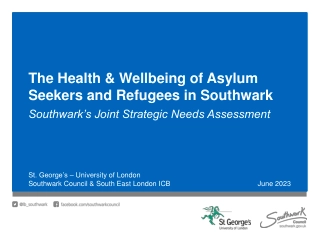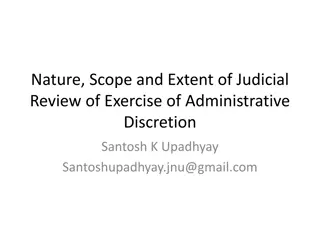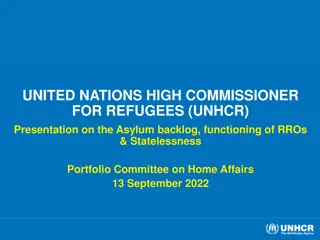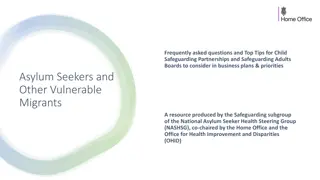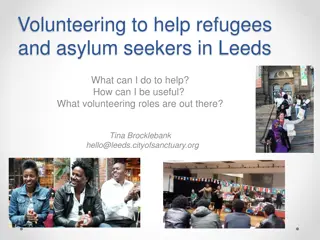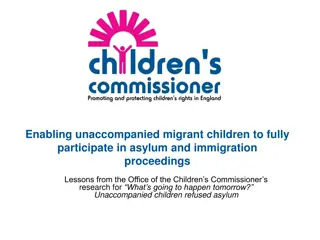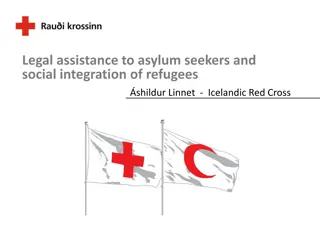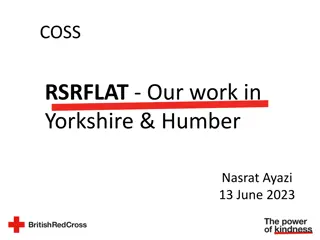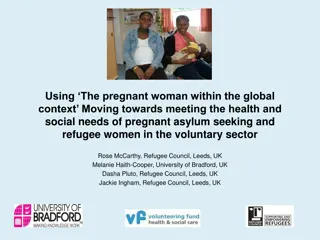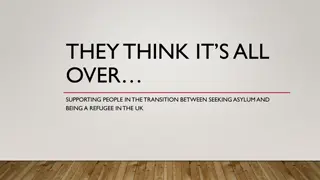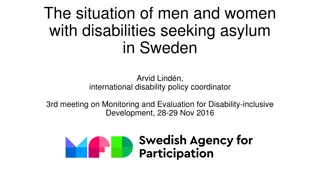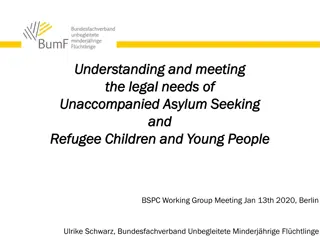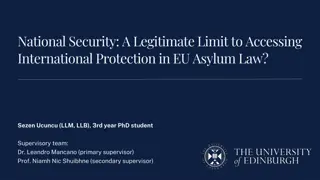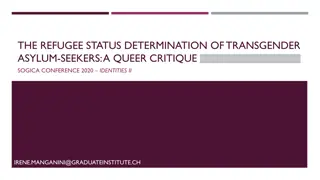LGBTQI+ Asylum in the UK: Discretion in Practice
UKLGIG supports LGBTQI+ asylum seekers in the UK through the asylum and immigration processes by providing psychosocial, emotional support, legal advice, and advocating for improved policies. The UK legal landscape has seen challenges in asylum claims based on sexual orientation, but landmark cases like HJ (Iran) and HT (Cameroon) have highlighted the importance of not requiring claimants to conceal their sexual orientation to avoid persecution.
Download Presentation

Please find below an Image/Link to download the presentation.
The content on the website is provided AS IS for your information and personal use only. It may not be sold, licensed, or shared on other websites without obtaining consent from the author.If you encounter any issues during the download, it is possible that the publisher has removed the file from their server.
You are allowed to download the files provided on this website for personal or commercial use, subject to the condition that they are used lawfully. All files are the property of their respective owners.
The content on the website is provided AS IS for your information and personal use only. It may not be sold, licensed, or shared on other websites without obtaining consent from the author.
E N D
Presentation Transcript
LGBTQI+ Asylum in the UK: Discretion in Practice Bojana Asanovic
UKLGIG The UK Lesbian & Gay Immigration Group (UKLGIG) supports LGBTQI+ people through the asylum and immigration process. UKLGIG provides psychosocial and emotional support for LGBTQI+ asylum seekers to help improve their mental health and reduce isolation; gives legal information and advice and advocates for improved policies and decision- making in LGBTQI+ asylum claims.
UKLGIG Research in Decision-making by UK Home Office Still Falling Short: The Standard of Home Office decision-making in asylum claims based on SOGI; July 2018 Missing the Mark: Decision making on Lesbian, Gay (Bisexual, Trans and Intersex) Asylum Claims; September 2013 Failing the Grade: Home Office initial decisions on lesbian and gay claims for asylum; April 2010
UK Legal Landscape 1 After caselaw confirmed in UK courts that sexual orientation can form the basis of a particular social group in 1999, UK refugee jurisprudence made it extremely difficult to succeed in an asylum claim based on sexual orientation between 2005 and 2010 on the basis that a person could live discreetly . The learning of the time was that the risk of ill treatment in countries would not amount to risk of persecution where it could be obviated by the claimant acting discreetly on return if this was reasonably tolerable to them (J v Secretary of State for the Home Department [2006] EWCA Civ 1238). Failing the Grade found 56% of the cases reviewed, case workers found that the person could return to a hidden life in their country of origin, even where people provided clear evidence of having suffered severe harm due to their sexual identity. At that time 98-99% SOGI claims were refused by Home Office (cf 73% all claims).
UK Legal Landscape 2 HJ (Iran) and HT (Cameroon) v Secretary of State for the Home Department [2010] UKSC 31, 7 July 2010 the case concerned two gay men. A claimant cannot be expected or required to conceal their sexual orientation to avoid persecution. Discretion is shorthand for steps that need to be taken in order to completely deceive the environment as to one s identity. surrounding persecutory UKLGIG: Applying HJ Iran and HT Cameron to asylum claims based on sexual orientation, June 2018.
UK Legal Landscape 2 HJ (Iran) and HT (Cameroon) v Secretary of State for the Home Department [2010] UKSC 31, 7 July 2010 the case concerned two gay men. The approach to be followed ( 82 Lord Rodger): (i) Is it reasonably likely that the claimant C is gay, or would be treated as such? (ii) Is there a real risk that gay men living openly in C s country of origin would be persecuted? (iii) How would C behave on return? (i) Would they be open - irrespective of whether they could avoid the risk by acting discreetly . (ii) Would they conceal who they are, thereby effectively avoiding persecution in which case they are a refugee
UK Legal Landscape 2 If C will conceal some things about themselves one must ask whether what they do will be effective: if the risk remains they are a refugee. It may be clear that C cannot avoid persecution whatever they do (known to persecutors, previous persecution) they will be treated as gay Where there is real risk of persecution, concealment may be unlikely to successfully and sufficiently remove the risk of persecution in the long term: in oppressive societies there is often no such thing as privacy so as to conceal effectively. It may be that what they would hide would still place them at risk (heterosexual narrative?) In cases where the applicant has suffered persecution in the past, the exploration of reasons for concealment on return is likely to be of limited, if any, relevance. Implausibility of past persecution being immaterial to future fear
UK Legal Landscape 2 (iv)If the answer to question (iii) is that C would conceal their sexual orientation and thus effectively avoid persecution, is a material reason to conceal avoiding persecution? This would be so, even if the fear of persecution was one among many other reasons for concealment (e.g. 62 Lord Rodger HJ Iran). Only where the risk of persecution is immaterial to concealment, the applicant will not be a refugee. It is difficult to imagine a rational human being with a sense for self- preservation who would not be influenced by real risk of persecutory harm when deciding to conceal in a country where there was such a risk - Most asylum seekers will opt for the life of discretion in preference to persecution. This is no real choice. If they are returned, they will, in effect, be required to act discreetly. ( 123 Lord Dyson HJ Iran).
HJ Iran in practice In the UK, HJ Iran approach applies to all refugee claims WA Pakistan [2019] EWCA Civ 302 Missing the Mark and Still Falling Short identified defects in approach to discretion in decision-making Misunderstanding of the test in HJ Iran e.g. persecution only needs to be one of the reasons for concealment Examining risk not to those who live openly but to those who conceal to in country of origin Focusing on the reasons for partial concealment in the UK
Challenges C-199/12 to C201/12 X, Y and Z v Minister voor Immigratie en Asiel [2014] QB 1111 that a person s sexual orientation was a characteristic so fundamental to their identity that they could not be expected to renounce it 46 and that QD does not require that in assessing the extent of the risk of actual acts of persecution in a particular situation, it is necessary to take account of the possibility open to the applicant of avoiding the risk of persecution by abstaining from the religious practice in question and, consequently, renouncing the protection which the Directive is intended to afford the applicant by conferring refugee status In LC (Albania) [2017] EWCA Civ 351; [2017] 1 WLR 4173 confirmed that HJ Iran analysis is correct in its entirety. UNHCR intervention in LC Albania proposed that where a person would be at real risk of persecution on being open concerning their sexual orientation and gender identity, courts should (rebuttably) presume the fear to be a material reason for any concealment. (Undecided because outside of the scope of the appeal.)
